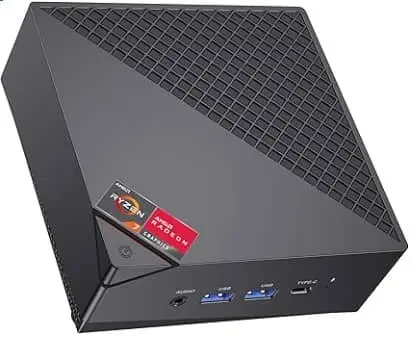
As the internet becomes more accessible to the world, the number of bloggers increases every day. Blogging has become a way for people to express themselves, share their experiences, and showcase their knowledge. However, as much as it is a fun hobby, it can also be a lucrative business. Monetize a blog with affiliate marketing is one of the most popular ways to make money online.
This article will guide you on how to monetize your blog with affiliate marketing, starting from the basics to advanced techniques.
What is Affiliate Marketing?
Affiliate marketing is a performance-based marketing model where you earn a commission for promoting another company’s products or services on your website. When someone clicks on your affiliate link and makes a purchase, you earn a commission. It’s a win-win situation for both the merchant and the affiliate marketer.
Choosing a Niche for Your Blog:
If you’re looking to monetize your blog through affiliate marketing, it’s important to choose a niche that you’re passionate about. Your readers will be able to tell if you genuinely care about the products or services you’re promoting, and your enthusiasm will help convince them to make a purchase.
But how do you go about choosing a niche? One approach is to think about your hobbies and interests. What topics do you find yourself constantly reading about or discussing with friends? Maybe you’re an avid gardener or a foodie who loves to try new recipes. Whatever your passion may be, there’s likely an affiliate program out there that aligns with it.

Another approach is to consider your professional background. Do you work in a specific industry, such as finance or healthcare? If so, you likely have a wealth of knowledge and expertise that can be applied to your blog. By sharing your insights and promoting relevant products or services, you can establish yourself as a thought leader in your field and attract a loyal audience.
Of course, it’s important to do your research before committing to a niche. Look into the competition to see if there’s a gap in the market that you can fill. Consider the size of your potential audience and whether there are enough affiliate programs available to make it worthwhile. And above all, choose a niche that you’re truly passionate about – that way, your blog will feel less like work and more like a labor of love.
Creating Quality Content:
To make your blog a success, creating high-quality content is key. Your content is what will draw readers to your site and keep them engaged. But what makes content “high-quality”? It’s all about providing value to your audience.
When creating content, focus on providing information that is informative, engaging, and relevant to your readers. Think about what problems they might be facing or questions they might have, and aim to provide solutions and answers. This will keep your readers coming back for more.
Incorporating your affiliate links into your content can be a great way to monetize your blog, but it’s important to do so seamlessly. Your affiliate links should be relevant to the content you’re creating and feel like a natural fit. Avoid over-promoting products, as this can come across as pushy and turn off your readers.

One way to incorporate affiliate links is to mention products or services you’ve used and enjoyed in your content. Share your personal experience with the product and why you recommend it. Another approach is to create product reviews or comparisons, highlighting the pros and cons of different options. Just make sure to disclose any affiliate relationships you have in accordance with FTC guidelines.
Ultimately, the key to success with affiliate marketing is to focus on creating quality content that provides value to your audience. By doing so, you’ll build a loyal following and increase your chances of earning commissions through your affiliate links.
Choosing Affiliate Programs:
After you’ve established your blog and created high-quality content, it’s time to start promoting affiliate products. There are a variety of affiliate programs available, but it’s important to choose ones that align with your niche and the interests of your audience.
One of the most popular affiliate programs is Amazon Associates, which allows you to earn commissions on products sold through your unique affiliate link. Amazon Associates offers a vast selection of products in almost every niche imaginable, making it a great option for bloggers in any industry.
Another affiliate program to consider is ShareASale, which provides access to a wide range of merchants and products. ShareASale allows you to earn commissions on sales, leads, and clicks, giving you multiple ways to monetize your blog.

ClickBank is another popular affiliate network that focuses on digital products, such as e-books, courses, and software. This can be a great option for bloggers in niches like personal finance, entrepreneurship, and self-improvement.
Commission Junction (CJ) is a large affiliate network that provides access to a diverse range of merchants and products. CJ also offers various tools and resources to help you optimize your affiliate marketing efforts.
When choosing an affiliate program, consider the commission rates, payment options, and support provided. It’s also important to read the terms and conditions carefully to ensure that the program aligns with your goals and values.
Ultimately, the key to success with affiliate marketing is to choose programs that align with your niche and audience, and to promote products in a way that feels authentic and adds value to your readers.
Promoting Your Affiliate Products:
Promoting your affiliate products is the most crucial step in monetizing your blog. There are several ways to promote your affiliate products, including:

- Writing product reviews: Write detailed product reviews that highlight the benefits and features of the product. Include your affiliate link in the review.
- Creating tutorials: Create tutorials or how-to guides that showcase how the product works. Incorporate your affiliate link in the tutorial.
- Placing banners or links: Place banners or links on your website that lead to the affiliate product. Make sure they are visible and relevant to your content.
- Email marketing: Use email marketing to promote your affiliate products to your subscribers. Include your affiliate link in the email.
- Social media promotion: Promote your affiliate products on social media platforms like Facebook, Twitter, and Instagram. Include your affiliate link in your posts.
Tracking Your Affiliate Sales:
Tracking your affiliate sales is an essential part of understanding the effectiveness of your affiliate marketing strategy. By keeping track of your sales and earnings, you can gain valuable insights into which products and promotions are resonating with your audience and driving the most revenue.
There are several tools available to help you track your affiliate sales, including Google Analytics and affiliate program dashboards. Google Analytics allows you to set up custom tracking codes for your affiliate links, so you can see which pages and campaigns are generating the most clicks and sales. This information can help you identify the most effective promotional strategies and optimize your content to drive even more conversions.
Many affiliate programs also offer dashboards that allow you to track your sales and earnings in real-time. These dashboards provide a wealth of information, including the number of clicks, conversions, and commissions generated by each affiliate link. By monitoring this data, you can quickly identify trends and adjust your strategy accordingly.

In addition to tracking your sales, it’s also important to keep an eye on your conversion rates. This metric measures the percentage of visitors who click on your affiliate links and make a purchase. By tracking your conversion rates, you can identify areas where your content or promotions could be improved to drive more sales.
Overall, tracking your affiliate sales is crucial to understanding the success of your affiliate marketing efforts. By using the right tools and monitoring your data closely, you can optimize your strategy and increase your earnings over time.
Conclusion:
Monetizing your blog with affiliate marketing is a great way to make money online. However, it requires patience, hard work, and dedication. You need to choose a niche that you are passionate about, create quality content, choose relevant affiliate programs, promote your affiliate products, and track your affiliate sales.
With the right strategy, you can turn your blog into a profitable business. Remember, providing value to your readers should always be your top priority.




Leave a Reply
You must be logged in to post a comment.